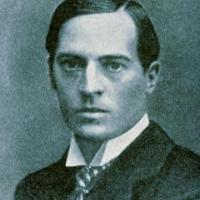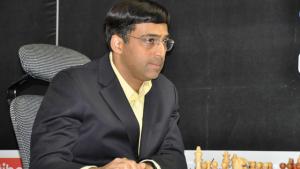
A Chess Story
There is a funny thing about chess: to succeed, you only need to be good at it. Up to a point, Fate can turn its back on you, but you can override it by simply playing really well. The upshot is that in the chess world, there are some great players who did not have fate on their sides.
I have often thought about the story of Carl Schlecter, who played a match for the world championship with Emanuel Lasker in 1910. Leading by one point before the final game, he lost the game – despite having a promising position and avoiding many draws. It's never been clear what the conditions for the match were - did he need +2 to win the match, and thus was in a must-win situation in the last game? Or did he only need a draw? If he had drawn the game (thus finishing the match with +1), he might have been seen having a “moral” claim to the world championship, even if the match conditions left the official title in Lasker’s hands. Here was the key position:
Instead Lasker won, tied the match and kept the title of World Champion. Eight years later, during World War One, Carl Schlecter died of starvation. Would that have happened if he hadn't played 35...Rxf4 in that fateful game?
Another story is that of the American Harry Nelson Pillsbury. An incredible talent, Pillsbury shot to fame during the Hastings 1895 tournament. Before the tournament he was a complete unknown, but he won the greatest tournament that had ever been held, and instantly became a world championship contender. In those days it was not easy to make a living as a chess professional – even for the top players. In order to do so, he played blindfold exhibitions on multiple boards throughout the world. Sometimes he also played checkers and whist. During these exhibitions he thrilled everybody with his personality and wit. He seemed like somebody who could conquer the world.
But his career didn’t last too long. In the next great tournament, St. Petersburg 1896, which was created to find out once and for all who the best player was (among Lasker, Steinitz, Pillsbury, and Chigorin), he lost a critical game to the World Champion Emanuel Lasker. Pillsbury missed some chances and Lasker won a magical brilliancy.
Pillsbury had started the tournament very well, and it had seemed that he would repeat the triumph at Hastings. But this game marked the dividing line – after it, he only scored 1.5 points from the last eight. Although he remained a great player, he never reached the level he had in 1895. His health began to deteriorate, and he died only nine years later, of syphilis. While the disease certainly caused his death, nervous conditions surely hastened the progression of a disease that is not necessarily deadly so soon.
And yet Pillsbury never forgot that fateful game. He found an improvement and waited years to use it. In the last year of his life, he once again faced Emanuel Lasker – and again Lasker used the same variation. Pillsbury won a beautiful game.

